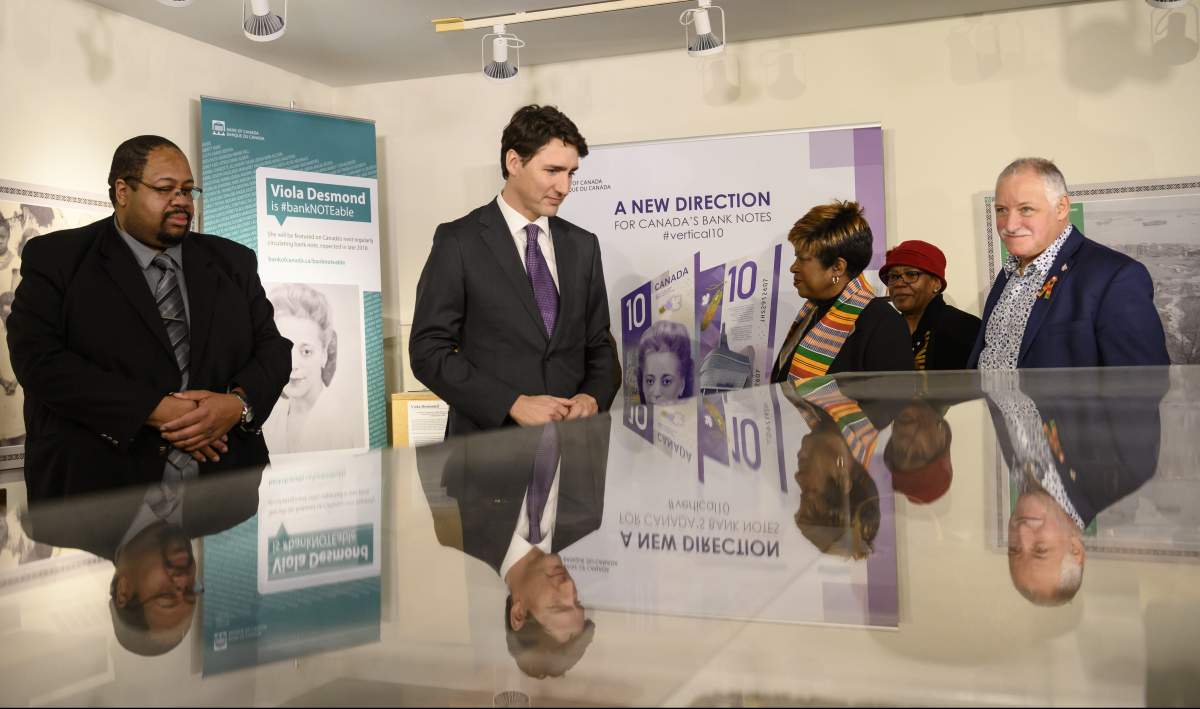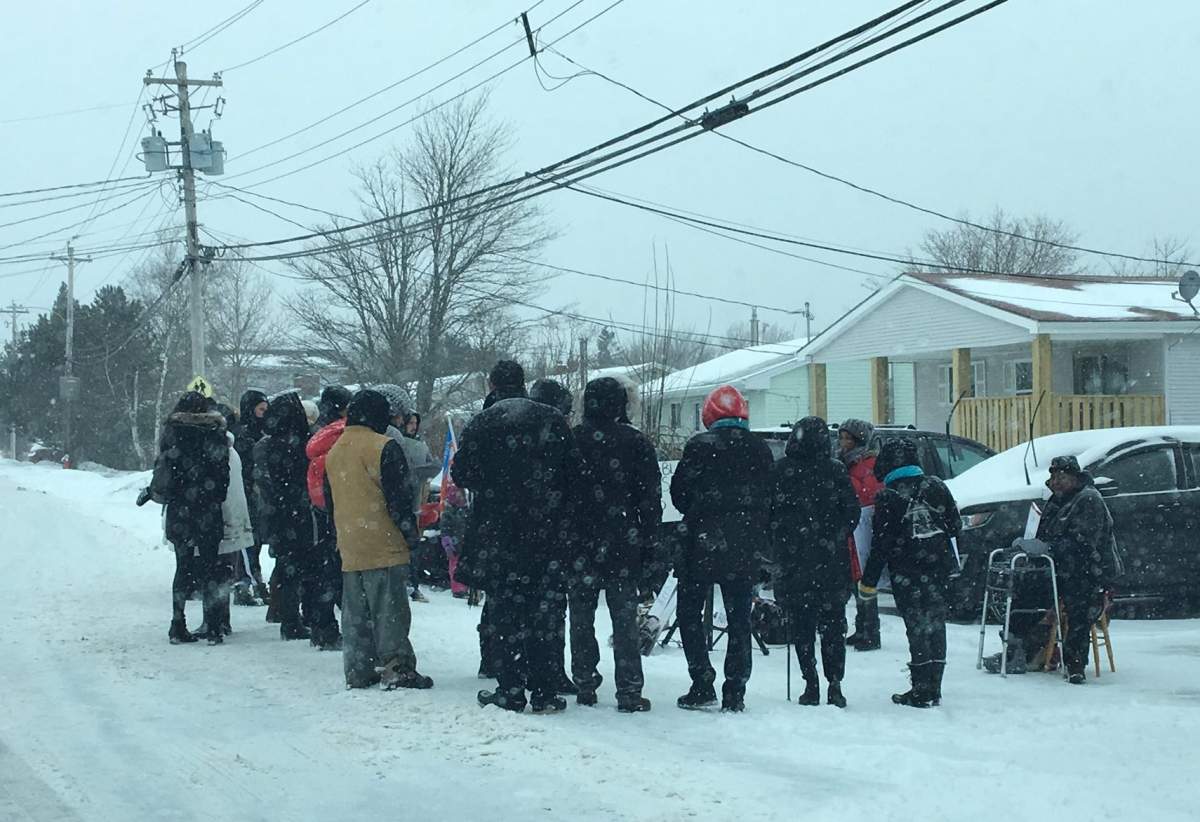Prime Minister Justin Trudeau drew supporters and protestors on Thursday as he offered a personal apology to a group of youths who were racially profiled while visiting Parliament.

Trudeau was speaking during a reception at the Black Cultural Centre for Nova Scotia in Cherry Brook, a suburb of Halifax with a large African Nova Scotian population.
He was referring to an incident that took place on Feb. 4 during an event called Black Voices on the Hill.
Trayvone Clayton and several other young participants have said they were referred to as “dark-skinned people” and asked to leave a parliamentary cafeteria by a security guard.
READ MORE: Parliament Hill security investigating alleged incident of racial profiling
In the days following the incident, Clayton called for a personal apology from the prime minister, and on Thursday, he got his wish.
It occurred face-to-face and behind closed doors.
“We all had our say,” he told reporters of the 30-minute meeting with the prime minister. “We respect his apology.”
Clayton, who is in his second year at Saint Mary’s University, said he was “very hurt” by the incident.
“We should be accepted for who we are and what we do. We should not be turned down just because of our skin colour,” Clayton said.
Trudeau told an audience of African Nova Scotians gathered at the Black Cultural Centre that the incident shows that racism, unconscious bias and systemic discrimination can emerge anywhere in Canada.
“A group of young people … faced discrimination and marginalization, and they faced a stark reminder that even in that one place that should be theirs … that anti-black racism exists, that unconscious bias exists, that systemic discrimination exists in this country today, still,” he said during his remarks.

Get daily National news
“We still have a country where discrimination based on the colour of a person’s skin is all too common and we have much, much work to do.”
WATCH: Black youth speak out about alleged racial profiling

As Trudeau spoke, protestors gathered outside the building to protest the apology, saying that it should’ve been made publicly.
“We are not a photo op, racism has got to stop,” the group chanted.
Protestors said the private apology shows that Trudeau doesn’t respect the black community in Nova Scotia. The group was not allowed to get too close to the prime minister, as police had closed off the parking lot of the Black Cultural Centre for Nova Scotia, forcing protesters to gather across the street.
“I think it’s interesting the prime minister is ostensibly here to apologize for an incident of racial profiling, yet there’s a security perimeter around the Black Cultural Centre,” said El Jones, a Halifax poet and community organizer.
“I guess black people are still a threat.”
READ MORE: Racial profiling and shopping while black in Canada
In a Facebook post after the protest, Jones said protestors had tried to get a woman who fell during the demonstration inside the cultural centre to get first aid but were denied entry by RCMP.
The woman was driven to the hospital by a member of the community.
The Parliamentary Protective Service previously offered an apology for the incident of racial profiling and said the force was investigating.
In the House of Commons on Tuesday, Speaker Geoff Regan called the service’s apology a welcome first step but said it shouldn’t be seen as closing the issue or as a way to erase the unacceptable reality of what occurred.
Trudeau and others attending Thursday’s ceremony — which marked the first visit of a prime minister to the community centre — praised the Black Cultural Centre for Nova Scotia for its role in preserving the history of the province’s black citizens.
He also noted his pride that Ottawa has introduced a $10 bill with a vertical portrait of Nova Scotia civil rights advocate Viola Desmond.
READ MORE: Prime Minister Justin Trudeau announces up to $86.5 million for Halifax’s Burnside Connector
Desmond was arrested after refusing to leave a whites-only section of a theatre in New Glasgow, N.S., in 1946.
“Canadians can see and know a part of our history that Canadians haven’t seen and recognized,” he said, adding that, unfortunately, the discrimination Desmond faced hasn’t disappeared, and such incidents continue too frequently in current times.
—With files from Whitney Middleton-Oickle and the Canadian Press










Comments